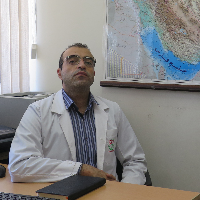Predicting the Effect of Climate Change on the Distribution of Echium Amoenum and Echium Italicum in Iran
Predicting the effect of climate change on the distribution of valuable and endangered plant species is essential for their conservation and management. In this study, the MaxEnt model and 10 environmental variables were used to predict the current and future distribution of E. amoenum and E. italicum in response to climate change. Also, to predict the effect of climate change in the future (the 2050s and 2070s), two climate scenarios of RCP 2.6 and RCP8.5 were used under the CCSM4 general circulation model. Evaluating the accuracy of the models based on the AUC index indicates their excellent performance (<0.9). Resutls of this study reveal that the most important variables affecting the distribution of E. amoenum species are slope (38.8%), annual temperature range (11.5%), and precipitation in the driest season (31.9%) are. Also, the solar radiation (37.6%), slope (36.4%), and the average temperature of the coldest season (11.5%) are the most important environmental factors affecting the distribution of E. italicum. In addition, the results show that the distribution of the studied species will decrease in response to climate change and under RCP2.6 and RCP8.5 in the 2050s and 2070s. Therefore, the results of this study emphasize the need to develop conservation strategies to prevent the extinction of these species.
-
Four new reports to the moss flora of Iran
Shahla Ahmadi, Ahmadreza Mehrabian *, Saeed Shirzadian
Botanical Journal of Iran, -
Pollen Morphology of Malvaceae in Iran: A Case Study to Complete Pollen Atlas of Iran
Mahnaz Arabameri, Ahmadreza Mehrabian *, Hamed Khodayari
Plant, Algae, and Environment, Sep 2023 -
Astragalus boldajiensis and Astragalus centro-zagrosicus (Fabaceae), two new species from west of Iran
Amin Zeraatkar *, Aliasghar Maassoumi, , Hamzeh-Ali Shirmardi
The Iranian Journal of Botany, Spring and Summer 2024 -
Pollen of prominent cultivated trees and wild herbaceous plant species of Tehran metropolis: an ecologic-allergic approach
Majid Beheshti, Ahmadreza Mehrabian *, , MohammadReza Fazlollahi
Environmental Sciences,


